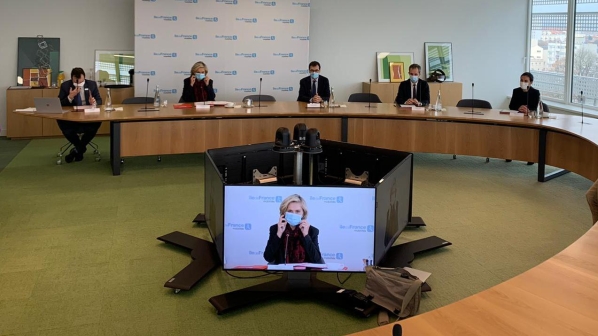Prior to the Covid-19 pandemic, SNCF operated 6000 Transilien services carrying 3.4 million passengers a day, with almost 30,000 staff.
The new contract includes 41 new quality control indicators, with a bonus and penalty system worth up to €100m per year, based on turnover of €12bn. If a service is cancelled, SNCF will refund the cost of operating the service to IDFM, and the operator will also refund passengers when services do not reach “acceptable standards.”
SNCF has also agreed to moderate its costs by adapting resources to passenger needs.
Under the contract, total investment in the network for 2020-2023 will increase to €8.1bn, up from €3.8bn over 2016-2019.
IDFM will provide €6.4bn for new rolling stock, maintenance workshops, sales, and passenger information systems. This includes new ticketing machines and new contactless payment methods.
€1.7bn has been allocated for stations, including €442m from SNCF Stations and Connections, which will be used to improve accessibility at 73 stations, increase the number of bike parking stations, replace escalators, lifts, passenger information screens and public address systems, and overhaul signage in 380 stations.
“I am confident in the strength of the Transilien collective,” says SNCF president and CEO, Mr Jean-Pierre Farandou. “In recent years, real progress has been made in terms of punctuality and passenger information. But Transilien wants to go further to be in pole position in future calls for tenders launched by IDFM. With this new contract designed for passengers, Transilien is aiming for excellence, and will achieve this in close cooperation with SNCF Stations and Connections and in close dialogue with SNCF Network.”

